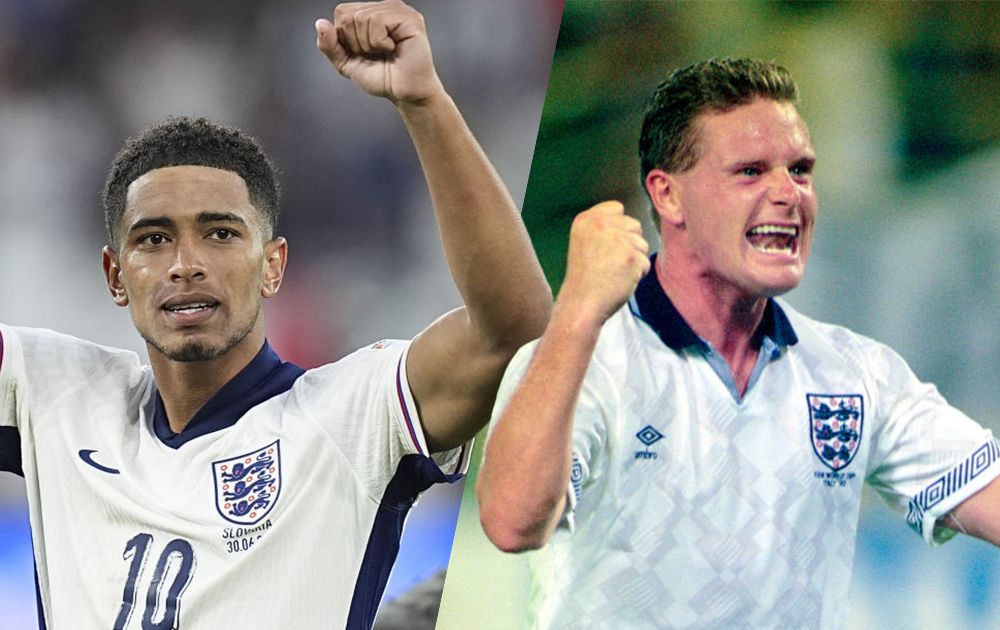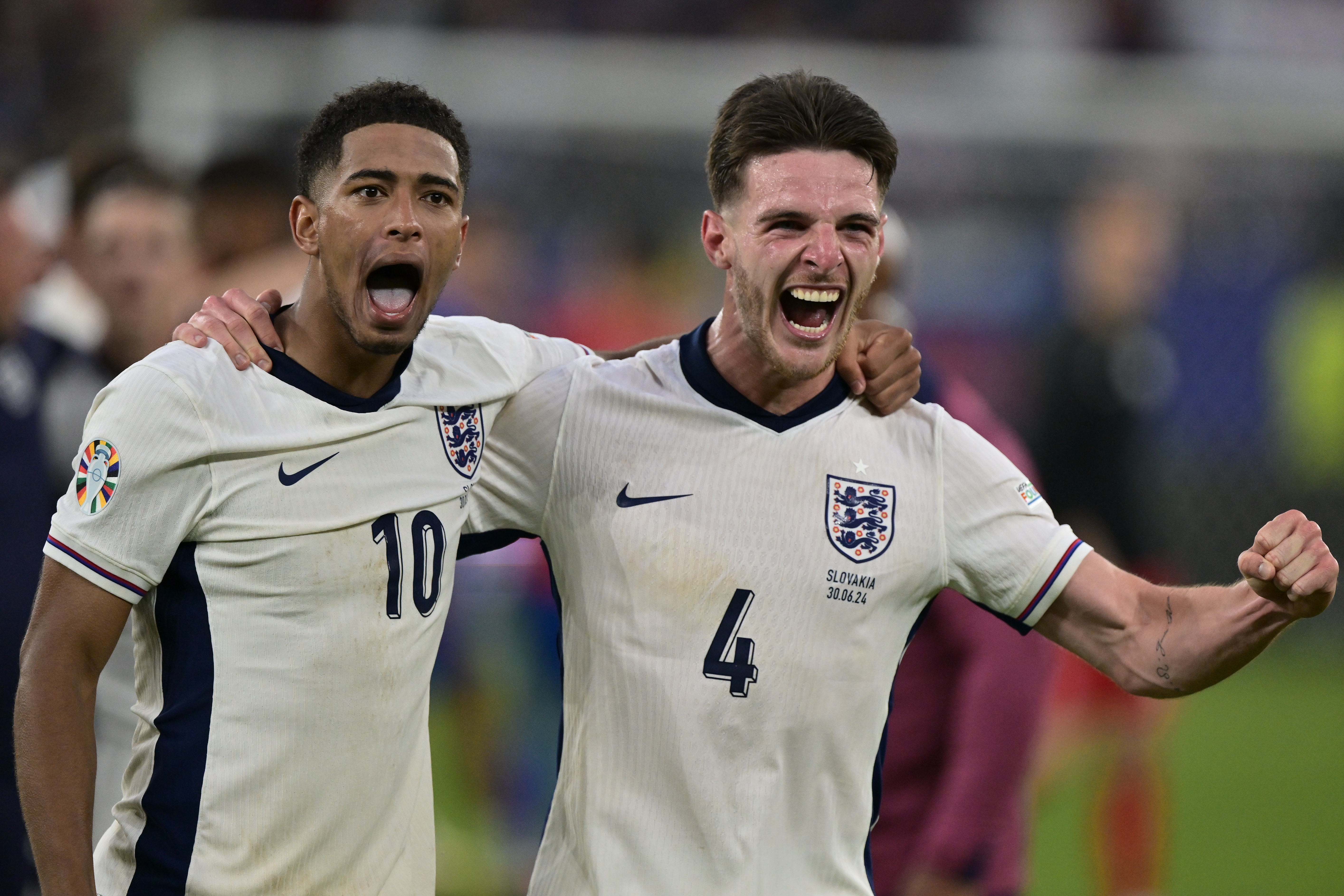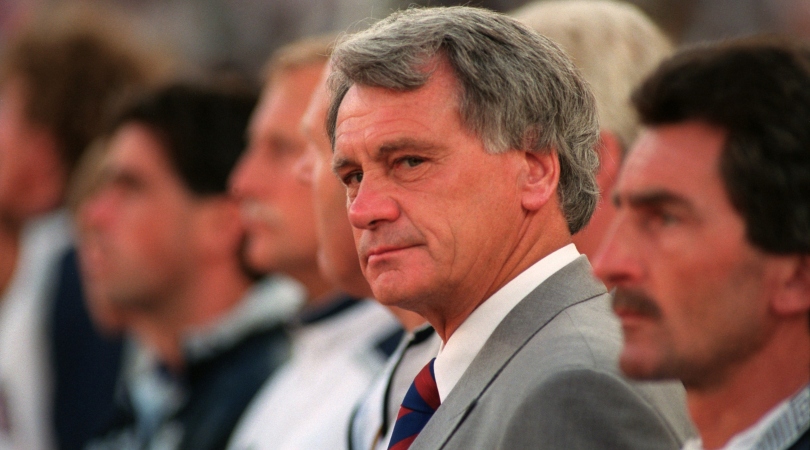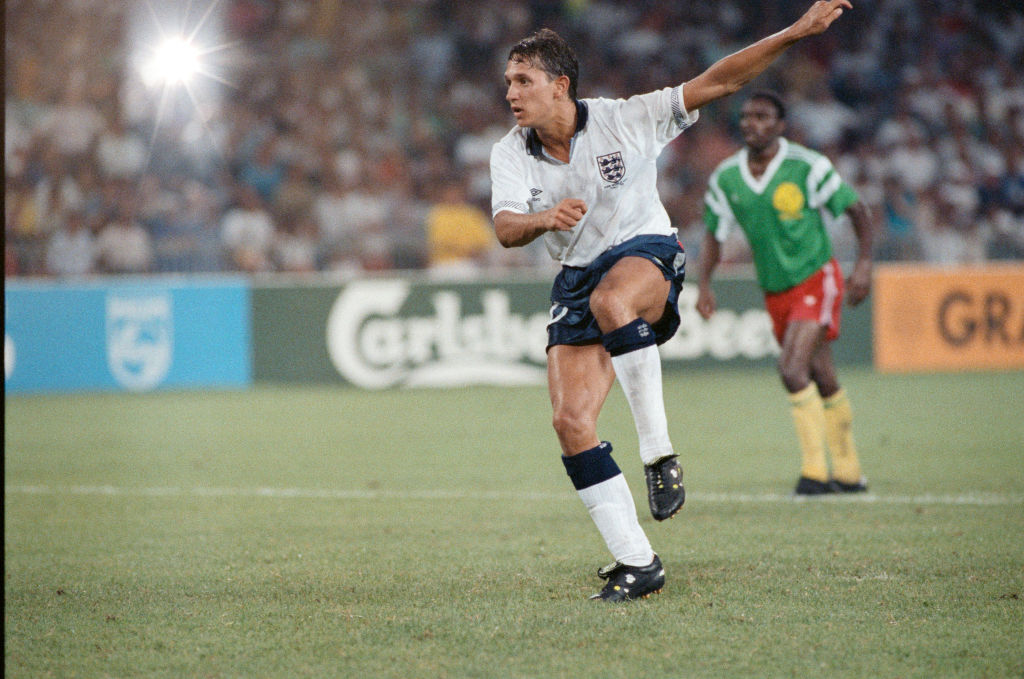England's Euro 2024 hold eerie similarities to one their most fondly-remembered tournament summers
Gareth Southgate's England at Euro 2024 have been oddly reminiscent of Bobby Robson's side at the 1990 World Cup

As England prepare for their Euro 2024 quarter-final against Switzerland, we can’t help but feel like we’ve lived all of this before.
There are eerie similarities between England’s unconvincing progress to the last eight of this year’s tournament and their 1990 World Cup campaign – which, incredibly, ended up becoming one of the most fondly-remembered summers England fans have ever had.
But it didn’t feel that way at the time. Bobby Robson had been under pressure throughout his time as England boss, especially after their awful showing at Euro 1988 that led Robson to offer to resign - an offer the FA rejected. Three very familiar results in what was seen before the tournament as a relatively kind group with just one major hurdle only ramped up the pressure.
Why England Might Have (Finally) Come Good Against Slovakia
Bobby Robson's England faced same challenges and criticisms as Gareth Southgate's Three Lions
Just like this year, England topped that group, but in thoroughly unconvincing fashion. At Euro 2024, Serbia were beaten 1-0, Denmark fought back to draw 1-1, and Slovenia shared a goalless draw. In 1990, it was the same scorelines in a different order: the Republic of Ireland came back to draw 1-1, the Netherlands held England 0-0, and Egypt were finally seen of 1-0.
The newspapers were gunning for Robson. David Miller wrote in The Times after that Ireland draw: “Having shared an opening match of barely third division international standing, in which England were outwitted even in that for much of the first half, both camps need to adjust, fast … I cannot recall a more inelegant World Cup match and shall be in no hurry to remember this one.”
The Sun, meanwhile, simply demanded that England should just fly home from Italy to save the nation from further embarrassment.
Get FourFourTwo Newsletter
The best features, fun and footballing quizzes, straight to your inbox every week.

This year, Jude Bellingham was the one to hit back at England’s critics after their victory over Slovakia, saying: "People talk a lot. You do have to take it personally a little bit. We work so hard at this game.
“We come in every day, we work hard to put on a performance for the fans, sometimes it doesn't go well and sometimes it feels like there's a a bit of a pile on, it's not nice to hear.
"But you can always use it and for moments like that, it's nice to throw it back to some people."
That holds clear echoes of Paul Gascoigne’s angry entreaty in 1990 after a spell of tabloid muckraking.
“It’s a disgrace,” Gascoigne told the BBC. “There’s people that don’t want us to win the World Cup, and the people at home, the public, get the wrong image of it.”
Just like modern-day Gareth Southgate, manager Robson came in for particular criticism. There is a slight point of difference, however: where Southgate has been criticised for his refusal to change things up, Robson faced questions about the fact that he did make changes to his system.

After that underwhelming showing against Ireland, Robson went with a sweeper system that looked better against reigning European champions the Netherlands and helped secure that clean sheet in their toughest assignment of the group stage.
Still the press were unhappy: far from being greeted as a canny move by the manager, there was instead speculation that the players had twisted his arm into playing in a shape they felt better suited the talents available in the squad.
Gary Lineker subsequently went out of his way to dispel that rumour on multiple occasions – just as Declan Rice has made clear this year that the players would ‘do anything to protect this manager, protect each other’.
England got a nominally tougher assignment in their first knockout game in 1990 than they did against Slovakia this year: Belgium had reached the semi-finals of the previous World Cup.
But just like this year, England made hard work of it in a tense encounter that included their much-lauded star midfielder failing to fire before producing in the dying moments (Gascoigne then, Bellingham now); a goal disallowed for offside (John Barnes then, Phil Foden now); a sensational and iconic goal from an attacking midfielder; and an extra-time winner to advance to the next stage.
After 119 minutes without a goal for either side, David Platt’s fabulous spinning volley off Gascoigne’s free kick took England through to the quarter-finals.

The ecstasy of that victory coupled with the shaky nature of their performance generated much the same mixed feelings: relief and belief that the dramatic nature of their victory might spark something, but also questions about whether England really looked at all like a side that could challenge for the trophy – despite landing themselves in by far the more inviting side of the draw.
Jeff Powell noted in his report in the next day’s Daily Mail that England had been ‘unaccustomed … to tactical variations through all but the last few days of Robson’s eight long years as national team manager’ and that England were in ‘only partial control of their Continental system’. 34 years later, Southgate faces many of the same questions about whether he has the right ideas to get England going.
Robson’s England needed a fightback against Cameroon in the quarter-finals. Their first-half opener, again provided by Platt, was overturned by a quickfire double midway through the second period, with a pair of Lineker penalties either side of extra time ultimately securing passage to the semi-finals.

By the end of that game against West Germany, the critics had been turned into apologists. England, infamously, lost in a penalty shootout.
But after two dramatic extra-time wins in the previous rounds, Gazza’s tears at receiving a yellow card that ruled him out of the final, and another late Lineker penalty that snatched a 90-minute victory away from the Germans, nobody cared about their struggles in the group stages.
Instead, England were popular tragic heroes: players who kept coming up against pressure and adversity, but kept finding a way to get through it right up until those misses from Stuart Pearce and Chris Waddle.
The nature of that incredible comeback against Slovakia may now have set Southgate’s England on a similar path. If they can get past Switzerland in the quarter-finals – by any means – those stultifying early performances will feel like a distant memory, and belief will begin to creep back in.
But there is a sense, this time, that even a noble semi-final defeat will not be enough: Southgate has, after all, been there and done that before.
2024 has been 1990 all over again for the Three Lions…but this time, they need to write a different ending if they are going to capture English hearts in quite the same way.
Get a free live stream to watch Euro 2024 from anywhere in the world to the summer's big tournament
More Euro 2024 stories
We have a guide on how to get Euro 2024 tickets if you're still looking to go to the tournament. Can’t make it out there? Don’t worry: here’s how to watch Euro 2024 live streams from anywhere in the world
We have the run-down on Euro 2024 stadiums, with info on host cities, capacities, and everything you need to know.
We also have a list of the Euro 2024 favourites, with best odds on nations to win European Championship in Germany, while these are the best Euros games ever and these are the best pundits ever.
With plenty of favourites for the tournament in 2024, here's a look at the previous records of some of the bigger nations at the tournament.
Steven Chicken has been working as a football writer since 2009, taking in stints with Football365 and the Huddersfield Examiner. Steven still covers Huddersfield Town home and away for his own publication, WeAreTerriers.com. Steven is a two-time nominee for Regional Journalist of the Year at the prestigious British Sports Journalism Awards, making the shortlist in 2020 and 2023.

